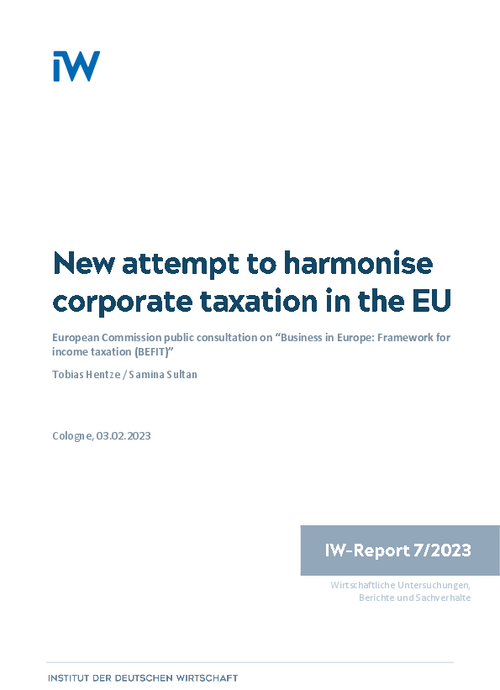In the course of 2023, the European Commission plans to present a proposal for a new corporate tax system under the title "Business in Europe: Framework for Income Taxation (BEFIT)".

New attempt to harmonise corporate taxation in the EU

In the course of 2023, the European Commission plans to present a proposal for a new corporate tax system under the title "Business in Europe: Framework for Income Taxation (BEFIT)".
Essentially, BEFIT is about establishing common rules within the European Union (EU) for calculating, consolidating and distributing the tax base of companies. The current transfer pricing system based on the arm's length principle is to be partially abandoned in favour of a profit split based on an allocation key to be defined. The profit shares would continue to be subject to the respective national tax rates. The proposal is to be in line with the international tax reform concept of the OECD.
Regarding the political options for shaping BEFIT, the mandatory scope of application should be limited to very large corporations. For other companies, however, there should be an option to apply the BEFIT rules. When defining the allocation key for the distribution of consolidated profits among the member states, the European Commission should take into account the factors sales, labour and tangible assets. In view of digitalisation, the consideration of intangible assets seems obvious, but could lead to new distortions due to valuation problems and tax planning by companies.
The idea of a common consolidated corporate tax base in line with the OECD's tax reform concept is a promising approach, as it can reduce the red tape burden for multinational companies and tax authorities in the medium term and increase transparency. Overall, the initiative for a harmonised tax base for companies in the EU and a formula-based apportionment of profits between EU countries, in combination with the minimum tax rate initiated by the OECD, represents an opportunity to ensure fairness in tax competition within the EU and thus promote investment and economic growth.
However, the European Commission should bear in mind that such a fundamental change in the tax system would probably lead to noticeable revenue effects for the member states. Small countries, in particular, are likely to receive less tax revenue under a formula-based profit-sharing system than before.

New attempt to harmonise corporate taxation in the EU

More on the topic

Global and European corporate tax reform concepts
The harmonization of corporate taxation at an international level has been on the political agenda for many years. Both the Organization for Economic Cooperation and Development (OECD) and the European Commission have presented reform projects in this regard, ...
IW
The Challenges to the Sustainability of Germany’s Public Finances
The German government’s fiscal responses to the Covid-19 pandemic and the Ukraine war in an attempt to cushion their impact have driven up the country’s general government debt-to-GDP ratio.
IW